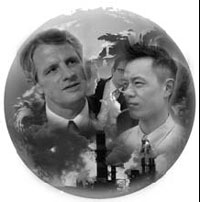The world is watching Bali. Representatives of nearly 200 nations are gathering there to make plans for the global fight against climate change.

But judging from news reports about a draft proposal that was published last Saturday, some things in the document may still reflect the dilemma facing countries in different economic conditions rather than lending a unifying power to all of them.
Dividing a task to different countries is always difficult and hardly leads to a unifying process, despite appeals. But setting the same economic awards can help mobilize all to participate.
The emission control plan should be backed by an international financial program, and new business practices.
It is perhaps time for the secretary-general of the United Nations to commission another experts' panel to map out some key global projects for emission control - such as the phasing out of old power plants, at least those in the least developed countries. (Power plants reportedly contribute by far the largest amount of greenhouse gas emissions today).
Top international financial organizations could provide the umbrella for global emission control funds to finance the UN endorsed projects.
Countries could apply to do what they are capable of doing. China, for instance, could come up with money as well as construction teams.
In the end, countries that have successfully phased out their old industrial processes could be rewarded with a more favorable trade and financial status.
Such international climate projects could take place with more proven new solutions, and progress from one area to another, such as from emission cuts to water saving and large-scale vegetation recovery. There could also be small international funds designated to help the testing and refining of early environmental technologies.
People often say there is but one Earth, and any harm done to the environment, no matter where it takes place, will affect all human beings. But in reality, it is difficult for all countries to agree to make the same effort, as measured by the same criteria - such as to cut greenhouse gas emissions at a fixed percentage of present emissions or on a per capita basis.
Nor can it be easy to divide the climate battle into two groups, one targeted for developed countries and the other for developing countries.
Would, for instance, countries following different paths of economic growth feel comfortable sharing the same emission quota, or accepting the same emission cut mandate?

Would countries that have yet to undergo any significant economic growth for the last decade be required to make similar efforts to those to be made by countries with much higher growth records - although they are all developing countries?
Or, would it be fair to just ask rich countries to cut emissions, no matter how deep the cuts will be, after they can almost entirely afford to rely on manufactured goods from overseas while harvesting profits from their investments in industrial operations worldwide?
At this critical time, a long debate would not be fruitful. But if we agree, as scientists have pointed out, that our climate problem is an outcome of the industrial revolution, then we have to look at how industry works to find ways to deal with it.
Manufacturing has become an integrated system around the globe, and the supply chain of nearly all goods, even simple household goods, is involving many countries, rich and poor.
Indeed, if old industrial operations are not replaced by a new generation of environment-friendly ones, any attempt toward emission control would likely hinder economic growth.
E-mail: younuo@chinadaily.com.cn
(China Daily 12/10/2007 page4)

